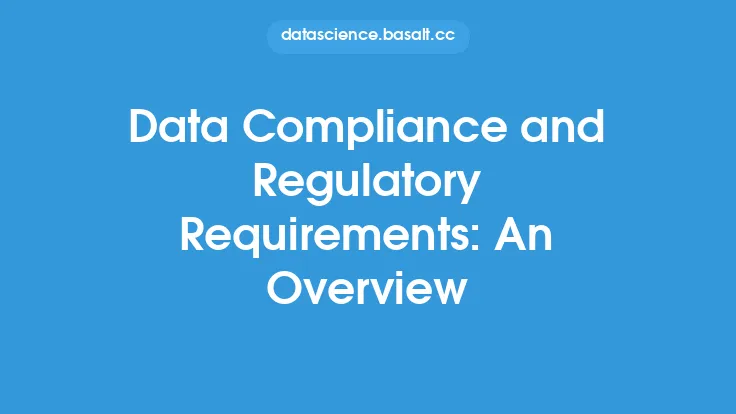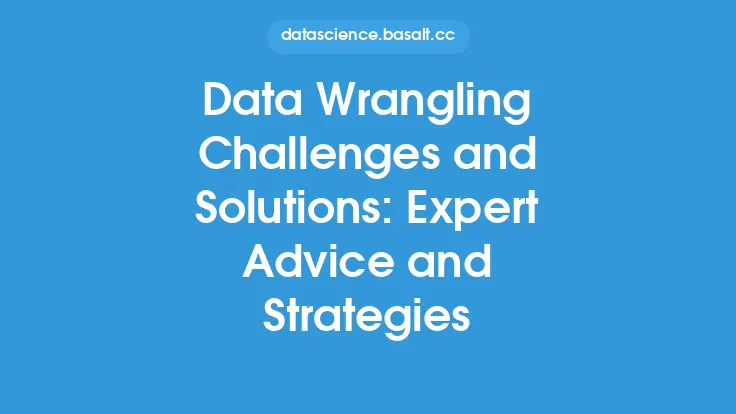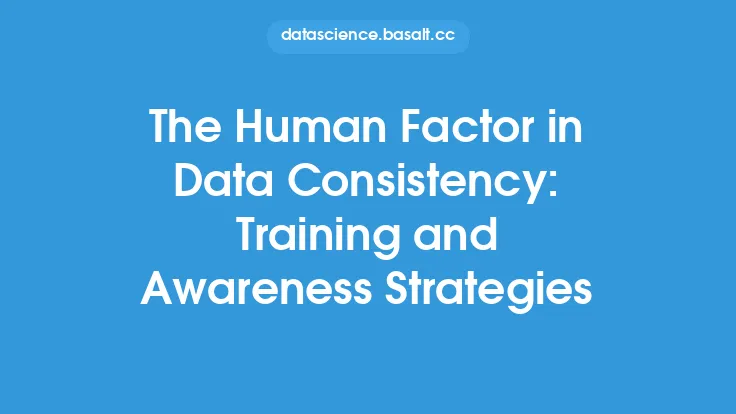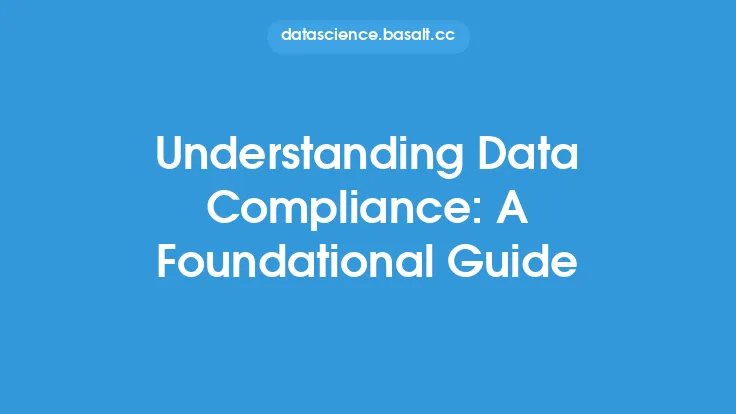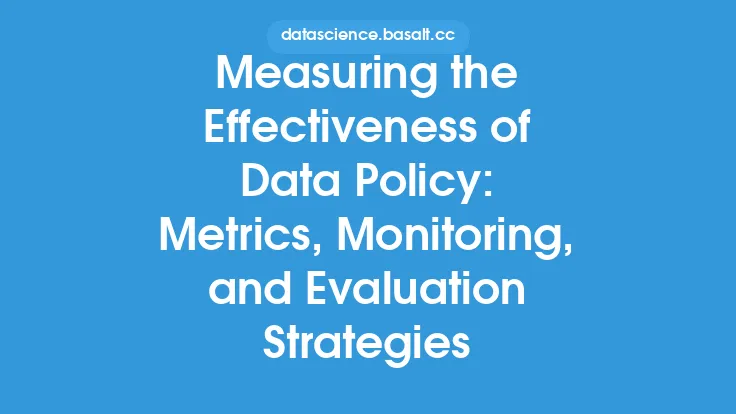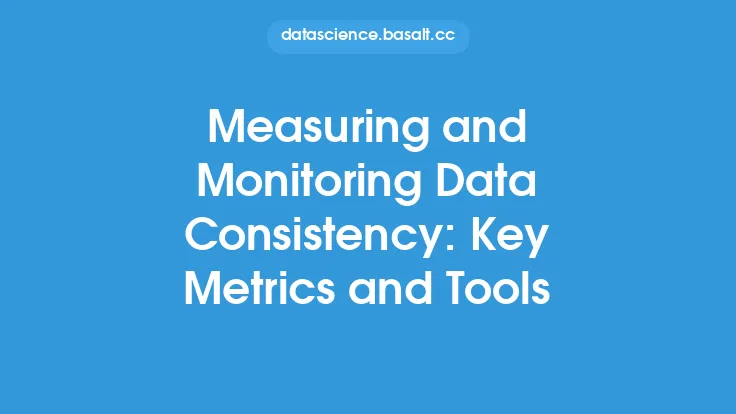Preparing for and responding to data compliance audits is a critical aspect of any organization's data governance strategy. As regulatory requirements and industry standards continue to evolve, it's essential for companies to stay ahead of the curve and ensure they are meeting the necessary compliance standards. In this article, we'll delve into the world of data compliance audits, exploring the key steps to prepare for and respond to these audits, as well as strategies for maintaining ongoing compliance.
Understanding Data Compliance Audits
Data compliance audits are formal evaluations of an organization's data handling practices, designed to assess adherence to relevant laws, regulations, and industry standards. These audits can be conducted internally or by external third-party auditors, and may be triggered by a variety of factors, including changes in regulatory requirements, mergers and acquisitions, or concerns raised by stakeholders. The primary goal of a data compliance audit is to identify potential risks and vulnerabilities, and provide recommendations for remediation and improvement.
Preparing for a Data Compliance Audit
Preparation is key to a successful data compliance audit. Organizations should begin by reviewing relevant regulatory requirements and industry standards, such as the General Data Protection Regulation (GDPR), the Health Insurance Portability and Accountability Act (HIPAA), or the Payment Card Industry Data Security Standard (PCI DSS). This review should include an assessment of the organization's current data handling practices, including data collection, storage, processing, and disposal. Next, organizations should conduct a thorough risk assessment, identifying potential vulnerabilities and areas for improvement. This may involve conducting internal audits, reviewing incident response plans, and assessing the effectiveness of existing controls.
Developing a Compliance Audit Response Strategy
In the event of a data compliance audit, organizations should have a clear response strategy in place. This strategy should include procedures for receiving and responding to audit requests, as well as protocols for providing access to relevant documentation and personnel. Organizations should also designate a primary point of contact to serve as a liaison between the audit team and the organization, ensuring that all requests are properly routed and addressed. Additionally, organizations should establish a process for tracking and addressing audit findings, including the development of corrective action plans and the implementation of recommended controls.
Technical Requirements for Data Compliance Audits
From a technical perspective, data compliance audits often require the evaluation of an organization's data security controls, including firewalls, intrusion detection systems, and encryption protocols. Auditors may also assess the organization's data storage and processing systems, including databases, data warehouses, and cloud-based infrastructure. In addition, auditors may review the organization's incident response plans, disaster recovery procedures, and business continuity strategies. To facilitate these technical evaluations, organizations should maintain detailed documentation of their data security controls, including system diagrams, configuration files, and audit logs.
Maintaining Ongoing Compliance
Data compliance is an ongoing process, requiring continuous monitoring and evaluation to ensure adherence to regulatory requirements and industry standards. Organizations should establish a compliance program that includes regular audits, risk assessments, and training programs, as well as procedures for addressing audit findings and implementing recommended controls. Additionally, organizations should stay up-to-date with changing regulatory requirements and industry standards, participating in industry forums and conferences, and engaging with regulatory bodies and standards organizations. By maintaining a proactive and adaptive approach to data compliance, organizations can minimize the risk of non-compliance, protect sensitive data, and maintain the trust of their customers and stakeholders.
Best Practices for Data Compliance Audits
To ensure a successful data compliance audit, organizations should follow several best practices. First, organizations should maintain a culture of compliance, emphasizing the importance of data protection and security throughout the organization. Next, organizations should establish clear policies and procedures for data handling, including guidelines for data collection, storage, processing, and disposal. Organizations should also provide regular training and awareness programs for employees, ensuring that all personnel understand their roles and responsibilities in maintaining data compliance. Finally, organizations should engage with external auditors and regulatory bodies, seeking feedback and guidance on their compliance programs and making adjustments as needed.
Common Challenges and Pitfalls
Despite the importance of data compliance audits, many organizations face challenges and pitfalls in preparing for and responding to these audits. One common challenge is the lack of clear policies and procedures, making it difficult for organizations to demonstrate compliance with regulatory requirements and industry standards. Another challenge is the absence of a dedicated compliance team, leaving organizations without a clear point of contact or liaison for audit requests. Additionally, organizations may struggle with the technical requirements of data compliance audits, particularly if they lack experience with audit protocols and procedures. To overcome these challenges, organizations should prioritize the development of clear policies and procedures, establish a dedicated compliance team, and engage with external auditors and regulatory bodies to seek guidance and support.
Conclusion
Data compliance audits are a critical component of any organization's data governance strategy, providing a formal evaluation of an organization's data handling practices and adherence to regulatory requirements and industry standards. By understanding the key steps to prepare for and respond to these audits, as well as strategies for maintaining ongoing compliance, organizations can minimize the risk of non-compliance, protect sensitive data, and maintain the trust of their customers and stakeholders. Whether through internal audits or external evaluations, data compliance audits play a vital role in ensuring the integrity and security of an organization's data, and should be prioritized as a key aspect of any data governance program.
